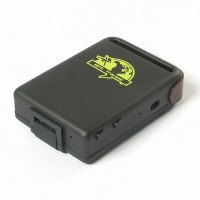The Supreme Court’s fall term, which began this week, is slated to hear several cases involving issues of surveillance technology. Specifically, it will determine if law enforcement officials have the right to use certain technological features to track a subject, and if so, at what point in the process a warrant needs to be obtained.
![]()
In one case, District of Columbia police attached a GPS bug to the car of Antoine Jones, a suspected cocaine dealer. The bug, which was placed without a warrant, ultimately led officials to evidence that they used against Jones in court. Jones appealed, arguing that the technology to track a car’s every turn should not be user without a specified search warrant. The lower courts were split on Jones’ appeal – as they have been on a range of similar GPS cases – causing the case to ultimately end up on the Supreme Court’s docket. Oral arguments are set to begin next month.
But first the Court will consider the case of People v. Gregory Diaz. The Court must answer a similar question here: were California police going outside of the law by looking through the contents of Gregory Diaz’s cell phone shortly after his arrest, without a search warrant? The Supreme Court of California ruled that no, they did not, because the incident happened in conjunction with the arrest and thus did not violate the Fourth Amendment.
Such cases, perhaps surprisingly, are not often heard by the Court, despite a proliferation of new tracking technologies in recent years. For example, the Court has not heard a case related to the tracking of a vehicle since 1983, well before GPS bugs were available.
But we can expect them to be more common in the near future. These days, not only does law enforcement have access to advanced tracking technology, but so do spouses, private detectives, and really anyone with an axe to grind. And the laws are far from clear; we don’t know at what point using this technology becomes a crime. We also don’t know, as the above cases illustrate, when tech-procured evidence is admissible.
So if you’re accused of criminal activity, and the evidence was gained through GPS bugs, you may have a good chance in court. And if you’re looking to track someone, and don’t want to walk the line of legality, it might be best to stick to legitimate technologies that provide personal information, such as public records or sites like Anywho.com, as a means of getting information.
